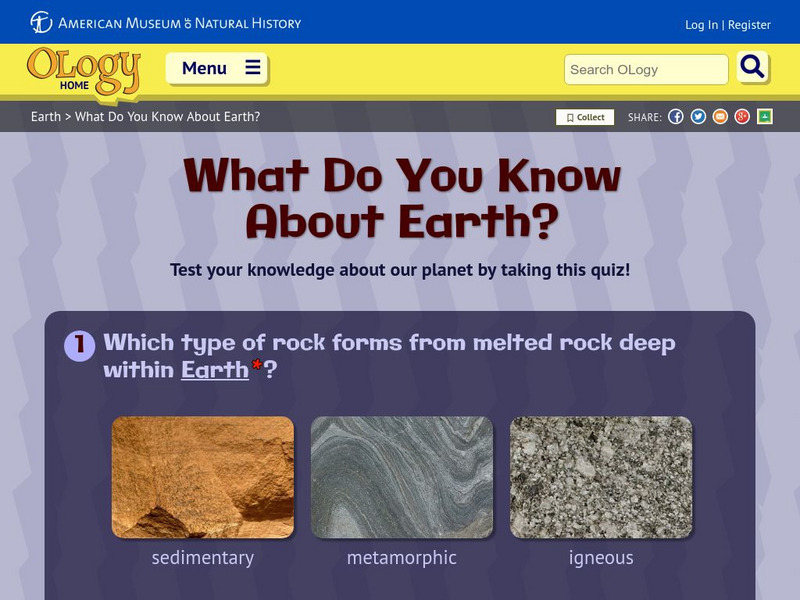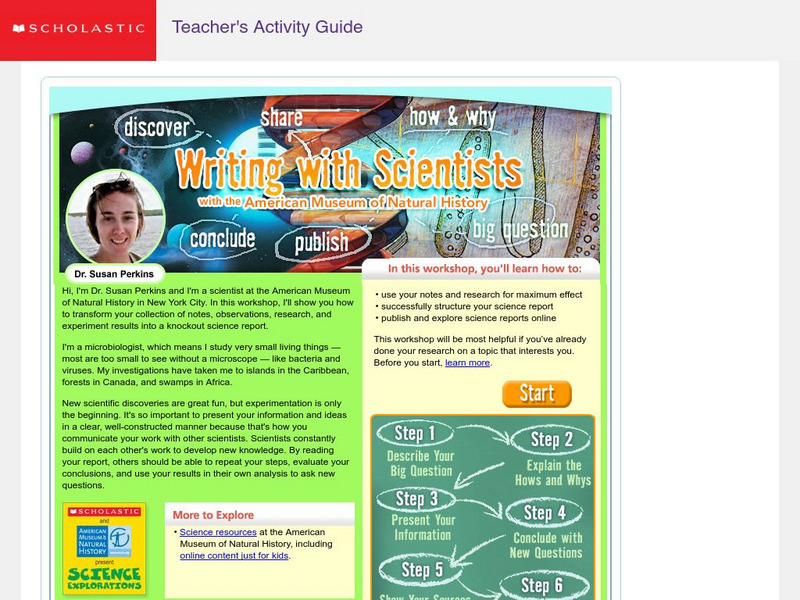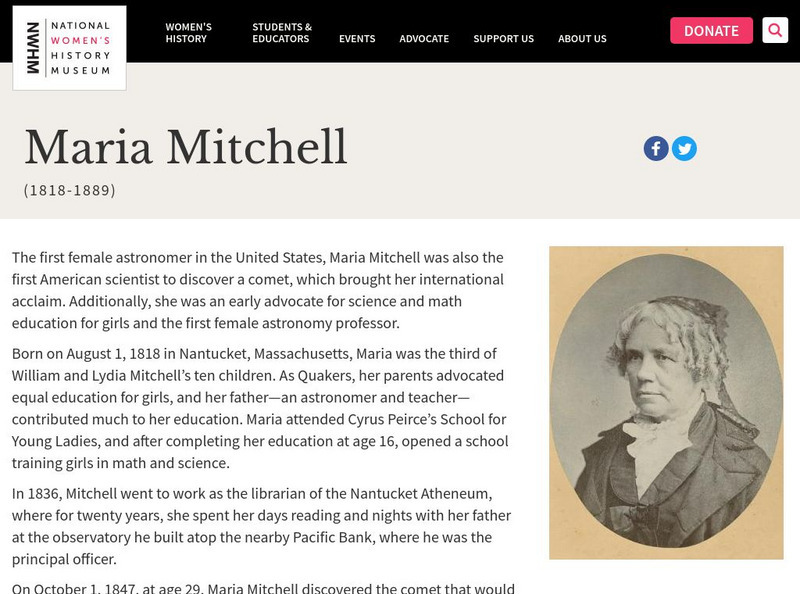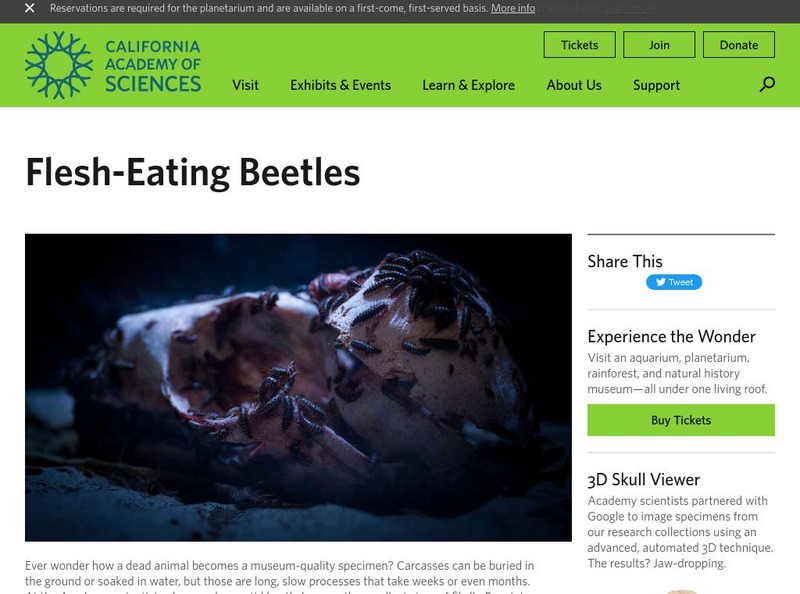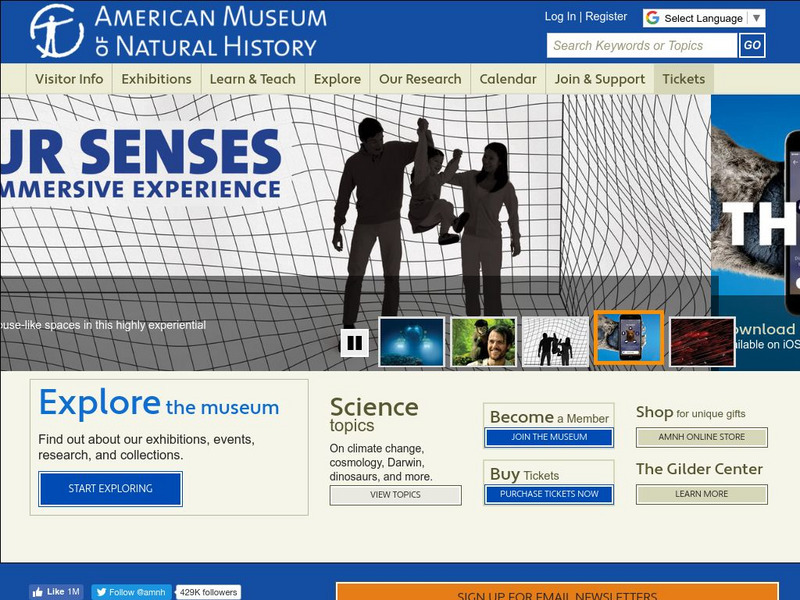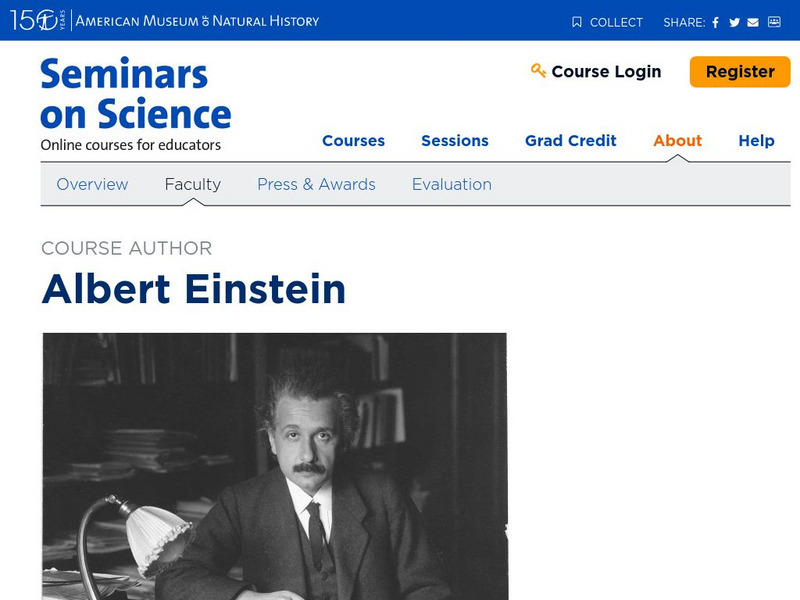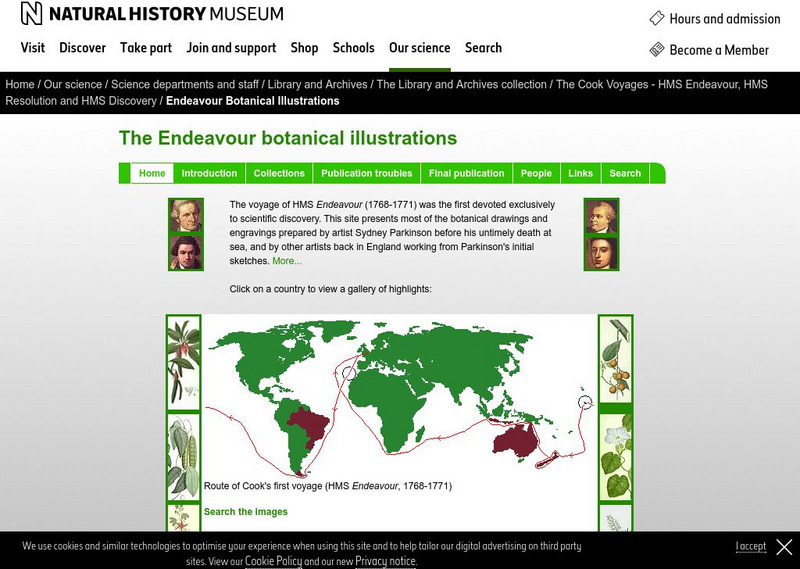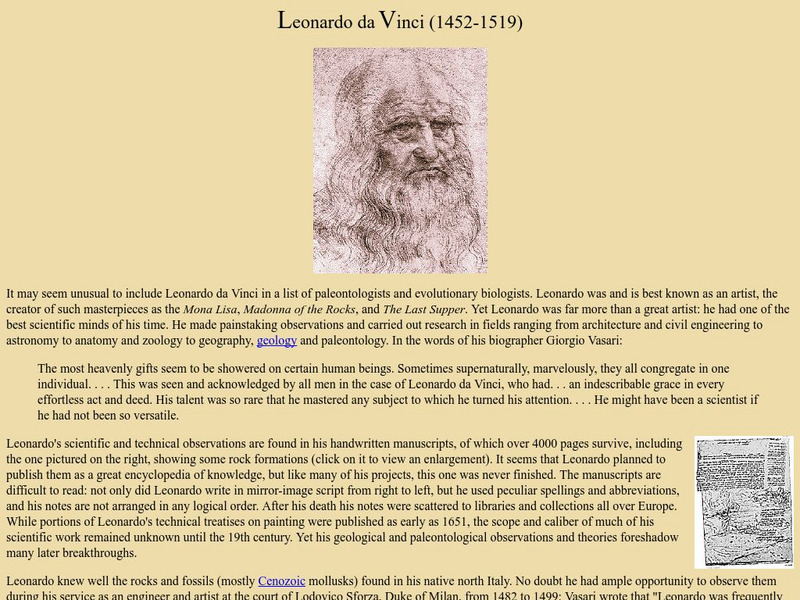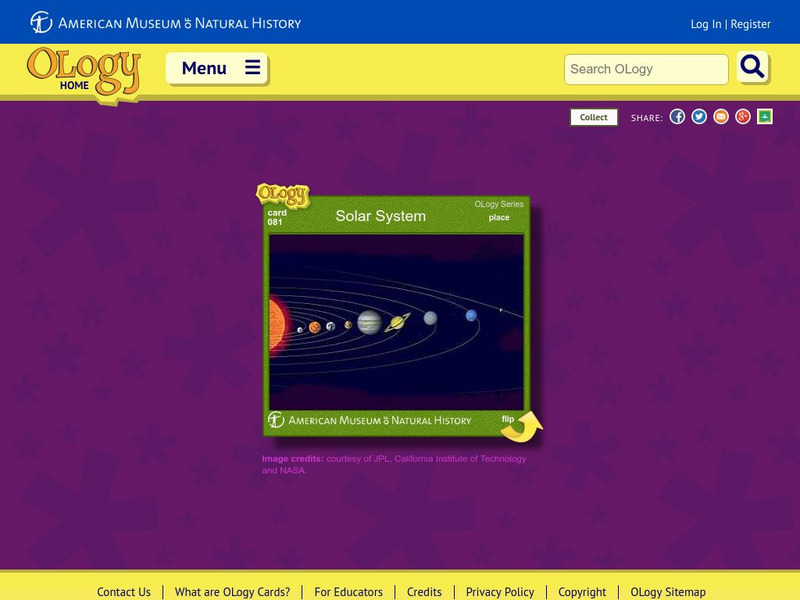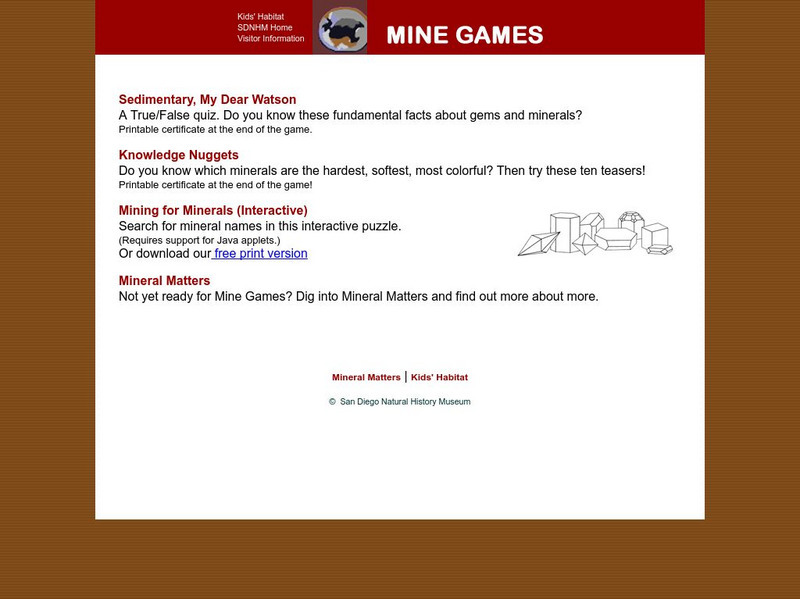University of California
Ucmp: A History of Evolutionary Thought
Museum site note on the history of evolutionary thought and includes scientists and thinkers who have contributed to our understanding of life on Earth. Links are provided for da Vinci, Linneaues, Erasmus Darwin, and others.
American Museum of Natural History
American Museum of Natural History: O Logy: What Do You Know? Earth Science
Take a ten question quiz on the Earth's surface.
Scholastic
Scholastic: Writing With Scientists With the American Museum of Natural History
Follow this six-step method and you'll have a good understanding of what a good scientific research paper involves and how it is organized. There are plenty of samples for you to look at. This explanation is also very helpful for...
American Museum of Natural History
American Museum of Natural History: Five Tools and Processes for Translating the Ngss Into Instruction and Classroom
The Five Tools and Processes for Translating the NGSS are designed to help professional development leaders work with teachers on curriculum, instruction, and assessment as they achieve this vision. Click the link for each tool for an...
American Museum of Natural History
American Museum of Natural History: Ology: See the Light
Reflection, refraction, and the colors that make up white light is explored through lab activities after reading a brief background about light energy.
Canada Science and Technology Museum
Canada Science and Technology Museum: An Exhibit on Communications
Follow the development of telecommunications from the earliest times to the most advanced technologies! Useful research tool highlighting the telegraph, telegram, telephone todigital networks and computing in Canada.
National Women’s History Museum
National Women's History Museum: Maria Mitchell
A biographical view of Maria Mitchell who becomes the first woman in the Western Hemisphere to discover a comet.
University of California
University of California Museum of Paleontology: Understanding Evolution
This resource presents extensive information for learning about and teaching evolution including an in depth course "Evolution 101", teaching materials, and a resource library.
Smithsonian Institution
National Museum of Natural History: Department of Mineral Sciences Collections
A searchable database of minerals and gems. Search by keyword or pre-defined characteristics. A Help section is available as well for aid in searching.
Smithsonian Institution
National Postal Museum: Art of the Stamp: Joseph Priestley
View the artwork for a U.S. postage stamp issued in 1983 to commemorate Joseph Priestley, the scientist who discovered oxygen. With a short passage on his contributions to the teaching of history, religion, and science.
California Academy of Sciences
California Academy of Sciences: Flesh Eating Beetles!
Get the gory low-down of flesh-eating beetles and find out how they are put to work in natural history museums.
American Museum of Natural History
American Museum of Natural History: Neil De Grasse Tyson
This resource provides information about Neil deGrasse Tyson, discussing his research and work in the field of astrophysics.
American Museum of Natural History
American Museum of Natural History: Profile: Albert Einstein
Read about the life and work of Albert Einstein, including details from his childhood and what he said about life just before he died.
Natural History Museum
Natural History Museum: The Endeavor Botanical Illustrations
A detailed collection of plant paintings by Sydney Parkinson, whose work on the HMS Endeavour helped further scientific discovery.
Natural History Museum
Natural History Museum (London): The Endeavour Botanical Illustrations
A series of articles and online exhibits that gives information on the various specimens, plants and animals that were collected and illustrations were then made. Cook led the world's first scientific naval expedition to the South Pacific.
Natural History Museum
The Natural History Museum: Chinese Mitten Crab
Brief information about these crabs and the environmental problems which they may cause.
University of California
Ucmp: Leonardo's Contributions to Science
Information about Leonardo da Vinci's observations of the natural world. An insightful commentary on the scientific achievements of the Renaissance.
American Museum of Natural History
American Museum of Natural History: Carl Sagan and the Quest for Life in the Universe
A brief biography of American astronomer and science advocate Carl Sagan.
Other
Denver Museum of Nature and Science: Ancient Denvers
What did Denver look like millions of years ago? Find out the answer to this and see how it has changed over time. There is also a list of parks to visit in Colorado.
American Museum of Natural History
American Museum of Natural History: Earthquakes O Logy Card
This interactive OLogy card defines earthquakes, provides fast facts about them, and lets you test your knowledge of earthquakes with fact-or-fiction questions.
American Museum of Natural History
American Museum of Natural History: Solar System O Logy Card
Here's an Ology Card about the Solar System, offering a small image, a definition, and information on how "far out" our Solar System is. Includes questions to quiz your knowledge and quick facts about the Solar System's size, rotation...
American Museum of Natural History
American Museum of Natural History: O Logy: Stuff to Do: Dna in a Blender
Follow these illustrated instructions to conduct a simple experiment in separating DNA from an onion!
San Diego Natural History Museum
San Diego Natural History Museum: Mineral Matters: Mine Games
Learn about minerals and have fun, too, playing Sedimentary, My Dear Watson, Knowledge Nuggets, Mining for Minerals (Interactive), and Minerals Matter. Downloadable features.
Natural History Museum
Natural History Museum: On Maggots and Murders: Forensic Entomology [Pdf]
Five-page article explains how forensic scientists, when investigating crimes, analyze maggots and blowflies to determine approximate times of death.

